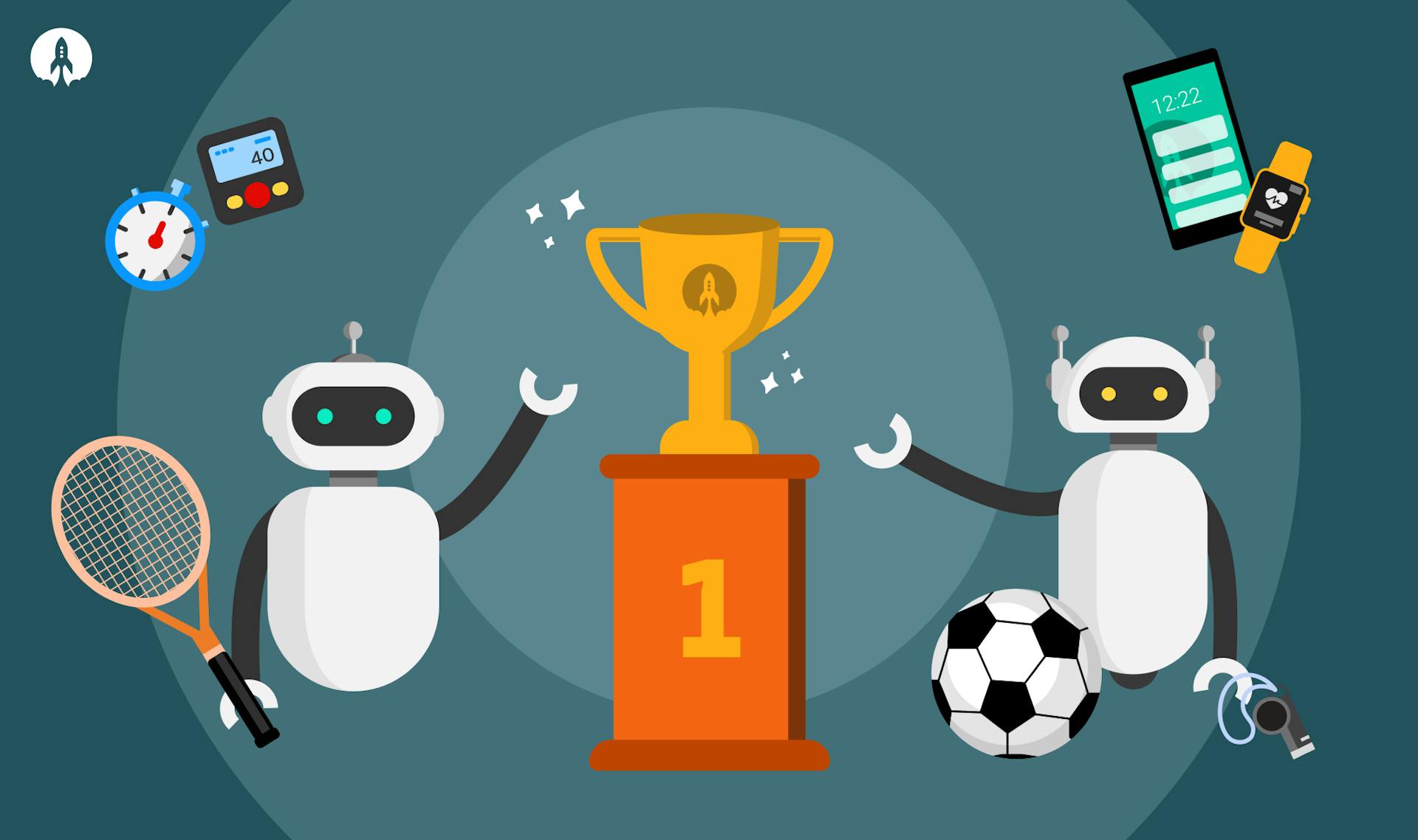Seven Sports Tech Software Trends for 2025

The sports industry is undergoing a technological revolution, with innovative software solutions enhancing athlete performance, fan engagement, and overall experience. Drawing insights from recent analyses, we've identified key trends shaping the future of sports app development.
1. AI-Powered Coaching
Artificial Intelligence (AI) is transforming coaching by providing real-time analysis and personalised feedback. Through computer vision and pose estimation, AI can assess athlete movements, identify strengths and weaknesses, and offer targeted recommendations. This technology not only aids professional athletes but also helps enthusiasts prevent injuries by ensuring correct exercise form.
Example: The NFL has implemented AI-powered wearables to monitor player fatigue, heart rates, and movement patterns. This real-time data assists coaching staff in adjusting training plans to prevent potential injuries, optimising player health throughout the season.
2. Immersive Augmented and Virtual Reality (AR/VR) Experiences
AR and VR are redefining how fans and athletes interact with sports. For fans, these technologies offer immersive viewing experiences, such as 360-degree game perspectives and virtual stadium tours. Athletes benefit from virtual training simulations, allowing them to practice in realistic, controlled environments, enhancing skills without physical constraints.
Example: The NBA has integrated AR into their app, enabling fans to view real-time statistics and interactive graphics overlaid onto the live game environment, enhancing the viewing experience.
3. Integration of Wearable Technology
Wearable devices have become integral to monitoring athlete performance. By collecting data on metrics like heart rate, speed, and movement patterns, these devices provide insights that inform training regimens and injury prevention strategies. When integrated with sports apps, wearables offer a comprehensive view of an athlete's health and performance, facilitating data-driven decisions.
Example: Catapult One smart vests are used by athletes to track performance metrics such as distance covered, sprint speed, and workload. The data collected is synced with a mobile app, providing detailed analytics to both athletes and coaches.
4. Advanced Performance Analytics
Data analytics is central to modern sports strategies. By analysing vast amounts of data, teams can develop effective game plans, monitor player performance, and predict outcomes. Sports apps equipped with analytics tools enable coaches and managers to make informed decisions, enhancing both individual and team performance.
Example: The English Premier League utilises AI to analyse live game footage, tracking player positions and team formations. This real-time data offers coaches valuable insights into opposition tactics and potential weaknesses, allowing for strategic adjustments during matches.
5. Gamification and Social Engagement
To boost user engagement, sports apps are incorporating gamification elements and social features. Leaderboards, achievement badges, and interactive challenges motivate users to stay active. Social sharing capabilities allow users to connect, compete, and celebrate milestones within their community, fostering a sense of camaraderie and sustained app usage.
Example: The app "GameChanger" provides live game updates, statistics, and allows fans to follow and support their favourite teams, creating a community-driven platform that enhances fan engagement.
Wikipedia, the free encyclopedia
6. Personalisation and Customised Content
Modern users expect personalised experiences. Sports apps are leveraging AI to deliver tailored content, such as customised workout plans, news updates about favourite teams, and personalised performance insights. This personalisation enhances user satisfaction and loyalty by catering to individual preferences and goals.
Example: The "IntelliGym" platform offers personalised cognitive training programs for athletes, adapting to individual performance and providing customised training sessions to improve game intelligence.
Wikipedia, the free encyclopedia
7. Real-Time Live Streaming
Live streaming capabilities have become a staple in sports apps, offering users real-time access to games, events, and training sessions. High-quality streaming, coupled with minimal latency, ensures fans and athletes remain connected to live action, regardless of their location. This feature enhances accessibility and broadens the audience base.
Example: The "MyWhoosh" platform provides real-time virtual cycling events, allowing users to participate in live races and training sessions from anywhere in the world, with high-quality streaming and interactive features.



